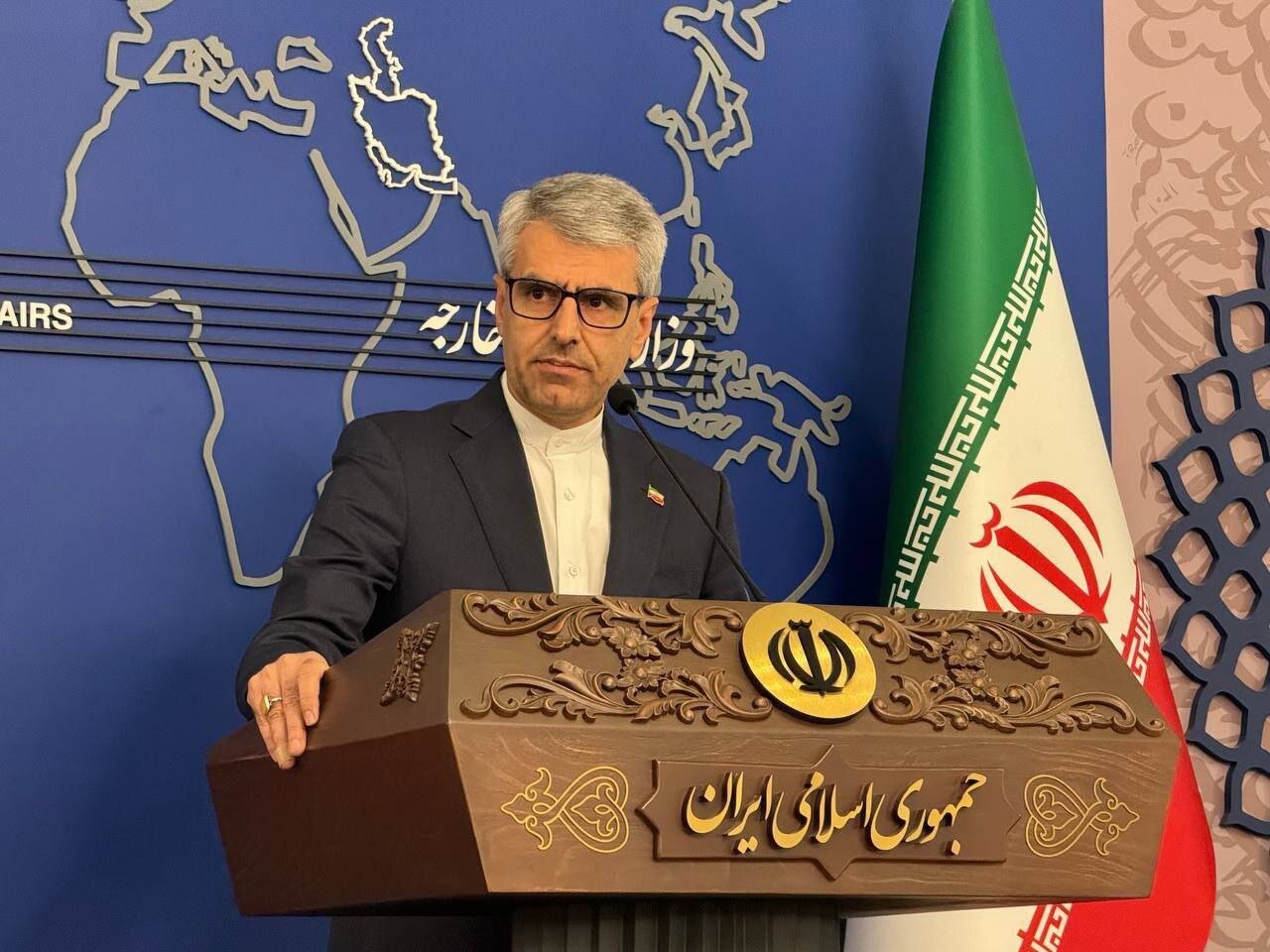Israel's war of aggression and Iran's legitimate response
The world must be united to counteract the aggressor

TEHRAN – In the early morning hours of 13 June 2025, Israel launched an unprovoked, large-scale armed attack against Iran. This was an egregious act of aggression by every definition. Through coordinated air, missile, and drone strikes, it targeted residential neighborhoods, civilian infrastructure, public authorities, and nuclear facilities subject to International Atomic Energy Agency (IAEA) safeguards.
These actions constitute a serious and unambiguous violation of international law, in particular International Humanitarian Law and International Human Rights Law, and the Charter of the United Nations. In one particularly atrocious instance, an Israeli strike on a residential building resulted in the killing of 60 civilians, including 35 children and women. In a new wave of military operations, Israel started to target infrastructure and industrial sites as well.
The main pretext for the attack was Iran’s nuclear program. As verified time and time again by the International Atomic Energy Agency (IAEA), Iran’s nuclear installations are used exclusively for peaceful purposes and remain subject to the most comprehensive and intrusive inspection regime administered under international auspices. The Israeli regime’s targeting of these safeguarded civilian nuclear facilities constitutes a deliberate act of aggression and a flagrant violation of international law and the legal framework governing nuclear safety and security.
As reaffirmed by the Director General of the IAEA, Mr. Rafael Grossi, during the recent emergency session of the United Nations Security Council, IAEA General Conference Resolutions GC(XXIX)/RES/444 and GC(XXXIV)/RES/533 make clear that any armed attack against nuclear facilities devoted to peaceful purposes constitutes a violation of the UN Charter, the Statute of the IAEA, and fundamental principles of international law. These resolutions underscore the grave risks such attacks pose to nuclear safety and security and highlight their profoundly destabilizing impact on regional and international peace.
The nature of the attack leaves no room for ambiguity: It constitutes an act of aggression in direct violation of international law. The legal threshold has been clearly crossed.
The Israeli regime has a long-standing and well-documented record of unlawful use of force against sovereign States. Its repeated targeting of civilian populations, critical infrastructure, and protected sites reflects a systematic contempt for the principles enshrined in the UN Charter. This latest assault is not an isolated episode; it is part of a consistent policy that weaponizes coercion and openly defies the international legal order. The rule of law is not being neglected—it is being willfully dismantled.
The broader context of the Israeli regime’s conduct must be recognized. Israel is currently subject to proceedings before the International Court of Justice for alleged acts of genocide in Gaza, and its senior
leadership, including Prime Minister Benjamin Netanyahu, faces credible allegations of war crimes and crimes against humanity, including through the deliberate targeting of civilians, the use of starvation as a method of warfare, and the systematic imposition of collective punishment. These are not isolated incidents. They form part of an enduring policy of militarized repression, institutionalized impunity, and disregard for the core tenets of international law, including human rights and humanitarian law.
At a moment when the credibility of the international system is under intense scrutiny, the selective application of legal principles and reliance on political expediency threaten to displace the foundational values of consistency, accountability, and the rule of law.
In response to the Israeli regime’s unlawful and unprovoked aggression, the Islamic Republic of Iran lawfully exercised its inherent right to self-defense as enshrined in Article 51 of the United Nations Charter. This fundamental right permits a state to defend its sovereignty and territorial integrity when subjected to an armed attack. Iran’s response adhered strictly to the principles and parameters
set forth by international law, ensuring that its actions were measured, necessary, and
appropriate under the circumstances.
Specifically, Iran’s response was carefully calibrated to be proportionate to the threat and the military attack by Israel. The response targeted exclusively at legitimate military objectives, including command and control centers, strategic military installations, and operational infrastructure directly linked to the unlawful attack. At all times, Iran maintained strict compliance with the rules of international humanitarian law, prioritizing the minimization of collateral damage.
The United Nations Security Council’s failure to respond decisively to this act of aggression represents a dereliction of its fundamental responsibility to maintain international peace and security. In past instances, the Council has acted swiftly and unanimously. Following Israel’s 1981 attack on Iraq’s Osirak nuclear reactor, the Council adopted Resolution 487, condemning the strike and affirming the sanctity of peaceful nuclear facilities. That precedent remains unambiguous. The law remains clear. Yet today, the Council stands paralyzed—its deliberations stifled by political pressure and the protective shield extended by a small group of powerful states. This inaction threatens to erode the very foundations of the multilateral system.
Iran calls upon the international community to condemn this act of aggression and reaffirms its commitment to the UN Charter and the fundamental principles of international law. Sovereignty is not negotiable. Nuclear installations under IAEA safeguards should not be targeted. Armed force must not be allowed to replace diplomacy. The Israeli regime cannot be permitted to rewrite the rules of international conduct through repeated violations and calculated provocation. The path to peace begins with accountability, and the international system must summon the will to uphold it.
Leave a Comment